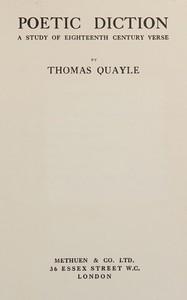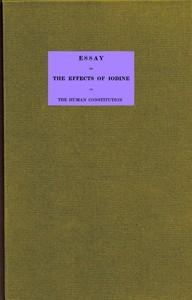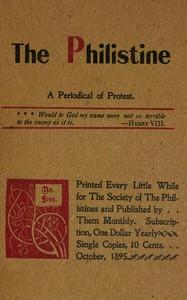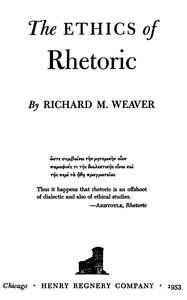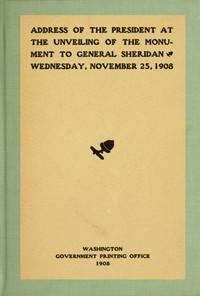|
|
Read this ebook for free! No credit card needed, absolutely nothing to pay.Words: 66917 in 28 pages
This is an ebook sharing website. You can read the uploaded ebooks for free here. No credit cards needed, nothing to pay. If you want to own a digital copy of the ebook, or want to read offline with your favorite ebook-reader, then you can choose to buy and download the ebook.

: Poetic diction: A study of eighteenth century verse by Quayle Thomas - English poetry 18th century History and criticism; English language Diction@FreeBooksThu 08 Jun, 2023 or that of his contemporaries, is likely to benefit thereby. Thus in the preface to "Annus Mirabilis" he boldly claims the liberty to coin words on Latin models, and to make use of technical details. In his apology for "Heroic Poetry and Poetic License" prefixed to "The State of Innocence and Fall of Man," his operatic "tagging" of "Paradise Lost," he seems to lay down distinctly the principle that poetry demands a medium of its own, distinct from that of prose, whilst towards the end of his literary career he reiterates his readiness to enrich his poetic language from any and every source, for "poetry requires ornament," and he is therefore willing to "trade both with the living and the dead for the enrichment of our native language." But it is significant that at the same time he rejects the technical terms he had formerly advocated, apparently on the grounds that such terms would be unfamiliar to "men and ladies of the first quality." Dryden has thus become more "classical," in the sense that he has gone over or reverted to the school of "general" terms, which appeared to base its ideal of expression on the accepted language of cultured speakers and writers. Toward the establishment of this principle of the pseudo-classical creed the theory and practice of Pope naturally contributed; indeed, it has been claimed that it was in large measure the result of the profound effect of the "Essay on Criticism," or at least of the current of thought which it represents, on the taste of the age. In the Essay, Pope, after duly enumerating the various "idols" of taste in poetical thought and diction, clearly states his own doctrine; as the poets' aim was the teaching of "True Wit" or "Nature," the language used must be universal and general, and neologisms must be regarded as heresies. For Pope, as for Dryden, universal and general language meant such as would appeal to the cultured society for whom he wrote, and in his practice he thus reflected the traditional attitude towards the question of language as a vehicle of literary expression. A common "poetics" drawn and formulated by the classical scholars mainly from Aristotle had established itself throughout Western Europe, and it professed to prescribe the true relation which should exist between form and matter, between the creative mind and the work of art. The critical reaction against these traditional canons had, as we have noted, already begun, but Pope and his contemporaries are in the main supporters of the established order, in full agreement with its guiding principle that the imitation of "Nature" should be the chief aim and end of art. It is scarcely necessary to add that it was not "Nature" in the Wordsworthian sense that was thus to be "imitated"; sometimes, indeed, it is difficult to discover what was meant by the term. But for Pope and his followers we usually find it to mean man as he lives his life in this world, and the phrase to "imitate Nature" might thus have an ethical purpose, signifying the moral "improvement" of man. It is not necessary to dwell long on this pseudo-classical confusion of the two arts, as revealed in the critical writings of Western Europe down to the very outbreak of the Romantic revolt. In English criticism, Dryden's "Parallel" was only one of many. Of the eighteenth century English critics who developed a detailed parallelism between pictorial and plastic art on the one hand and poetry on the other, maintaining that their standards were interchangeable, the most important perhaps is Spence, whose "Polymetis" appeared in 1747, and who sums the general position of his fellow-critics on this point in the remark, "Scarce anything can be good in a poetical description which would appear absurd if represented in a statue or picture." The ultimate outcome of this confusion of poetry and painting found its expression in the last decade of the eighteenth century in the theory and practice of Erasmus Darwin, whose work, "The Botanic Garden," consisted of a "second part," "The Loves of the Plants," published in 1789, two years before its inclusion with the "first part" the "Economy of Vegetation," in one volume. Darwin's theory of poetry is contained in the "Interludes" between the cantos of his poems, which take the form of dialogues between the "Poet" and a "Bookseller." In the Interlude to Canto 1 of Part II he maintains the thesis that poetry is a process of painting to the eye, and in the cantos themselves he proceeds with great zeal to show in practice how words and images should be laid on like pigments from the outside. The young Wordsworth himself, as his early poems show, was influenced by the theory and practice of Darwin, but Coleridge was not slow to detect the danger of the elaborate word-painting that might arise from the confusion of the two arts. "The poet," he wrote, "should paint to the Imagination and not to the Fancy." For Coleridge Fancy was the "Drapery" of poetic genius, Imagination was its "Soul" or its "synthetic and magical power," and he thus emphasized what may be regarded as one of the chief distinctions between the pseudo-classical, and the romantic, interpretations of the language of poetry. In its groping after the "grand style," as reflected in a deliberate avoidance of accidental and superficial "particularities," and in its insistence on generalized or abstract forms, eighteenth century poetry, or at least the "neo-classical" portion of it, reflected its inability to achieve that intensity of imaginative conception which is the supreme need of all art. The confusion between the two arts of poetry and painting which Coleridge thus condemned did not, it is needless to say, disappear with the eighteenth century. The Romanticists themselves finally borrowed that much-abused phrase "local colour" from the technical vocabulary of the painter, and in other respects the whole question became merged in the symbolism of the nineteenth century where literature is to be seen attempting to do the work of both music and painting. Dr. Johnson has many things to say on the subject of poetic language, including general remarks and particular judgments on special points, or on the work of the poets of whom he treated in his "Lives." As might be expected, he clings tenaciously to the accepted standards of neo-classicism, and repeats the old commonplaces which had done duty for so long, pays the usual tribute to Waller and Denham, but ascribes the actual birth of poetical diction to the practice of Dryden. What Johnson meant by "poetical diction" is clearly indicated; it was a "system of words at once refined from the grossness of domestic use, and free from the harshness of terms appropriated to different arts," that is, the language of poetry must shun popular and technical words, since language is "the dress of thought" and "splendid ideas lose their magnificence if they are conveyed by low and vulgar words." From this standpoint, and reinforced by his classical preference for regular rhymes, all his particular judgments of his predecessors and contemporaries were made; and when this is remembered it is easier to understand, for instance, his praise of Akenside and his criticism of Collins. Gray, however, perhaps the most scrupulous and precise of all our poets with regard to the use of words in poetry, has some pertinent things to say on the matter. There is his important letter to West, already referred to, with its dogmatic assertion that "the language of the age is never the language of poetry," and that "our poetry has a language to itself," an assertion which, with other remarks of Gray, helps to emphasize the distinction to be made between the two ideals of poetical diction to be seen persisting through the eighteenth century. It was generally agreed that there must be a special language for poetry, with all its artificial "heightening," "licenses," and variations from the language of prose, to serve the purpose of the traditional "Kinds," especially the Epic and the Lyric. This is the view taken by Gray, but with a difference. He does not accept the conventional diction which Pope's "Homer" had done so much to perpetuate, and hence he creates a poetic language of his own, a glittering array of words and phrases, blending material from varied sources, and including echoes and reminiscences of Milton and Dryden. The second ideal of style was that of which, as we have seen, the canons had been definitely stated by Pope, and which had been splendidly exemplified in the satires, essays, and epistles. The aim was to reproduce "the colloquial idiom of living society," and the result was a plain, unaffected style, devoid of the ornaments of the poetic language proper, and, in its simplicity and directness, equally suitable for either poetry or prose. Gray could make use of this vehicle of expression, whenever, as in "The Long Story," or the fragmentary "Alliance of Education and Government," it was suitable and adequate for his purpose; but in the main his own practice stood distinct from both the eighteenth century ideals of poetical language. Hence, as it conformed to neither of the accepted standards, Goldsmith and Johnson agreed in condemning his diction, which was perhaps in itself sufficient proof that Gray had struck out a new language for himself. Among the special problems connected with the diction of poetry to which the eighteenth century critics directed their attention, that of the use of archaic and obsolete words was prominent. It had been one of the methods by which the Elizabethans had hoped to enrich their language, but contemporary critics had expressed their disapproval, and it was left to Jonson, in this as in other similar matters, to express the reasonable view that "the eldest of the present and the newest of the past language is best." Dryden, when about to turn the "Canterbury Tales" "into our language as it is now refined," was to express a similar common-sense view. "When an ancient word," he said, with his Horace no doubt in his mind, "for its sound and significancy deserves to be revived, I have that reasonable veneration for antiquity to restore it. All beyond this is superstition." A few years later the long series of Spenserian imitations had begun, so that the question of the poetic use of archaic and obsolete words naturally came into prominence. Pope, as might be expected, is to be found among the opposition, and in the "Dunciad" he takes the opportunity of showing his contempt for this kind of writing by a satiric gird, couched in supposedly archaic language:
an attack which is augmented by the ironic comment passed by "Scriblerus" in a footnote. Nevertheless, when engaged on his translation of Homer he had an inclination, like Cowper, towards a certain amount of archaism, though it is evident that he is not altogether satisfied on the point. Free books android app tbrJar TBR JAR Read Free books online gutenberg More posts by @FreeBooks
: Essay on the effects of iodine on the human constitution With practical observation on its use in the cure of bronchocele scrophula and the tuberculous diseases of the chest and abdomen by Gairdner William - Iodine Therapeutic use@FreeBooksThu 08 Jun, 2023

: The Philistine: a periodical of protest (Vol. I No. 5 October 1895) by Various Taber Harry Persons Editor - American literature Periodicals; American periodicals; Society of the Philistines (East Aurora N.Y.) Periodicals@FreeBooksThu 08 Jun, 2023
|
Terms of Use Stock Market News! © gutenberg.org.in2025 All Rights reserved.

